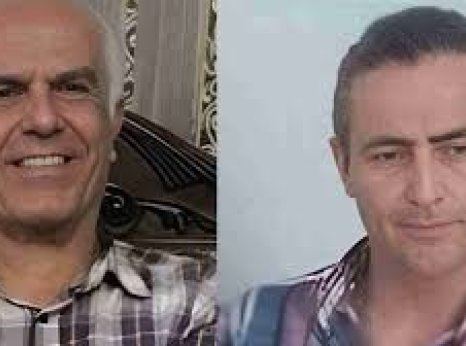Iran: Prisoners At Imminent Risk Of Execution

Behrouz Ehsani and Mehdi Hassani were also convicted of multiple other charges including “spreading propaganda against the system”, “gathering and colluding to commit crimes against national security” and “membership of a group with the purpose of disrupting national security” for which they received prison sentences. According to informed sources, prison officials have told them their death sentences would be quashed if they write a letter of repentance and express remorse, but they have refused, insisting on their innocence.
Since February 2024, Behrouz Ehsani and Mehdi Hassani have been on hunger strike every Tuesday as part of the “No to Execution Tuesdays” campaign by Iranians, including prisoners held for political reasons. In January 2024, prisoners on death row in Iran started going on hunger strike every Tuesday and publicly plead for interventions to halt executions in the country. This courageous act sparked solidarity hunger strikes by human rights defenders, including Nobel Peace Prize laureate Narges Mohammadi, who was released from prison temporarily in December 2024, and 60 other women imprisoned for political reasons in Tehran’s Evin prison, as well as labour rights activists and relatives of victims of Iran’s mass prisoner killings of the 1980s. On 18 September 2024, a letter written by Behrouz Ehsani that was smuggled out of prison and published online referred to the hunger strikes that he, Mehdi Hassani and scores of others on death row across the country have undertaken and underscored the need for international support to end the cruel and inhumane executions in Iran. Part of the letter wrote:
“…After 22 months of uncertainty, they [the authorities] have now issued a death sentence against me without any evidence. We expect nothing else from this execution-driven system…In addition to political prisoners, ordinary prisoners are executed every day…who are the defenceless victims of this system and its conditions. We have now completed the 34th week of the ‘No to Executions’ Tuesday hunger strikes, alongside [prisoners from] 21 other prisons across the country. We will continue these hunger strikes every Tuesday as long as executions continue to take place. I call on my dear compatriots, international organizations, and human rights institutions to take action against executions in Iran today because tomorrow will be too late. Join us in the ‘No to Executions’ Tuesday movement. People who seek freedom and democracy do not deserve execution. The silence of the international community emboldens this regime to carry out its executions.”
Amnesty International has previously documented how trials held in Revolutionary Courts are systematically unfair and result in arbitrary executions. The organization has documented hundreds of cases over decades where criminal proceedings held before Revolutionary Courts, leading to prison and death sentences, gravely violated the right to a fair trial. These included the rights: to access legal representation at the investigation phase of individuals’ cases and a lawyer of their choosing from the time of arrest and throughout trial and appeal proceedings; to protection from torture and other ill-treatment; not to be compelled to incriminate or confess guilt ; to the presumption of innocence; to meaningfully challenge the legality of their detention; to be tried by an independent, competent and impartial tribunal; and to a meaningful review of their cases by a higher court.
Over the past two years, in the aftermath of the Woman Life Freedom uprising, the Iranian authorities have intensified their use of the death penalty to instil fear among the population and tighten their grip on power. In 2023, Amnesty International recorded the executions of at least 853 people by the Iranian authorities, marking a 48% increase from 2022. The majority of people were executed arbitrarily after grossly unfair trials before Revolutionary Courts. In 2024, the authorities continued their execution spree, including against protesters, dissidents and ethnic minorities, again executing hundreds of people, many arbitrarily after grossly unfair trials held before Revolutionary Courts. The real number of executions is likely to be far higher as the Iranian authorities are not transparent and do not provide publicly accessible information on executions.
Amnesty International opposes the death penalty in all cases without exception. The death penalty is a violation of the right to life as proclaimed in the Universal Declaration of Human Rights and the ultimate cruel, inhuman and degrading punishment.